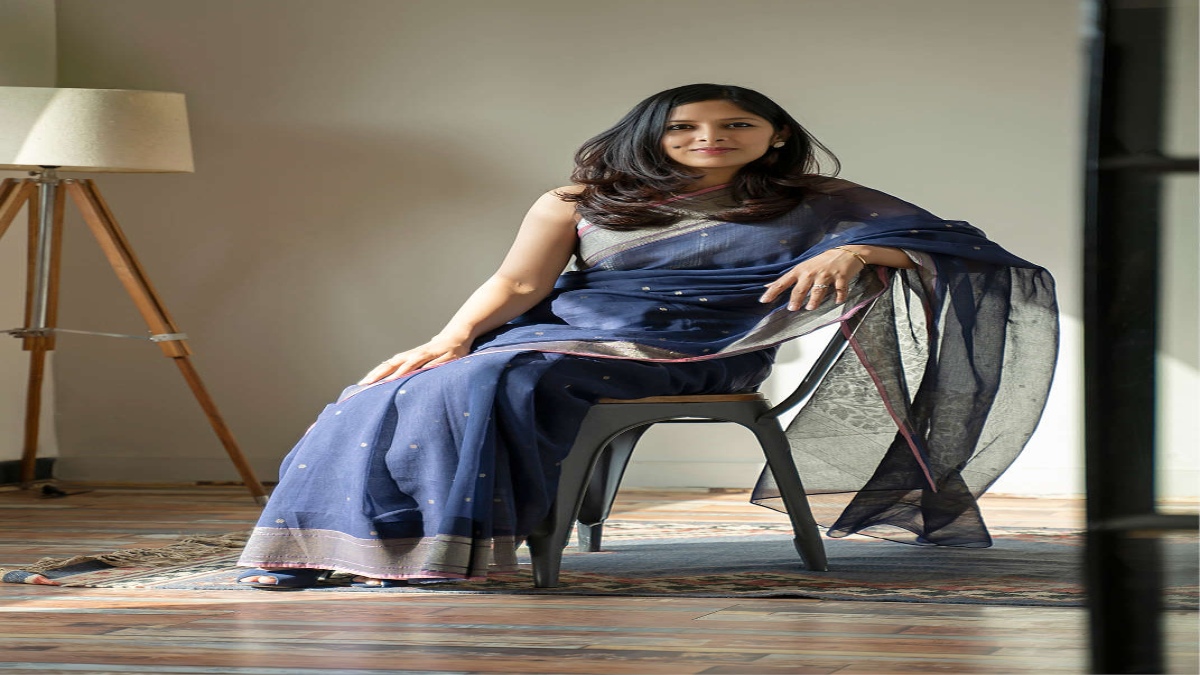
India’s rich cultural heritage has always been a strong influence on the clothes we wear, despite the advent of Western trends. The success of Tilfi, an indigenous brand born in Banaras in 2016, personifies this idea to the core. By offering fine Banarasi handloom saris, dupattas and lehengas, woven in pure silk, cotton, koras, georgettes and more, Tilfi has quickly become a name to reckon with.



 Aditi Chand, co-founder & CEO, Tilfi Banaras.
Aditi Chand, co-founder & CEO, Tilfi Banaras.
Aditi Chand, co-founder and CEO of the brand, is committed to highlighting and investing in Banaras’ rich past to ensure its exquisite handicrafts are valued by future generations. With the vision of establishing the concept of ‘Banarasi’ as the epitome of luxury handloom—the brand swears by its promise of purity, craftsmanship, artistry and durability.
Its signature piece Kashi, is a pure Katan silk Banarasi handloom saree. Made with the classic handwoven Banarasi technique passed down through generations of weavers, on pure Katan silk described as being ‘soft as butter’, it is their most hot-selling item. The glorious outline of Varanasi’s ghats are handwoven on to the borders of these resplendent silk sarees, with Roopa Sona or Gold and Silver zari work. The detailed designs mirror the splendour of Banaras viewed from the river Ganga. Additionally, the brand offers a multitude of sarees, suits, lehengas, jackets, dresses and off-beat ensembles through the wide selection on its website.
Having lived in various cities of India and abroad, Chand returned to India to pursue her entrepreneurial dreams. She claims that her years of professional experience of leading multicultural teams in high-performing environments, and her MBA degree from INSEAD, equipped her with the skills and expertise required to build an Indian artisanal brand. Her experience and desire were shared by her spouse Udit Khanna and his brother Ujjwal Khanna, who came from a family that had worked with Banarsi textiles for over 100 years. As wholesalers of handwoven textiles across Northern India, the Khanna family was firmly entrenched in this business, when things changed drastically in the late 2000s. Changing consumer preferences, the proliferation of creations made in power-looms and the gradual decline of weaving traditions in artisan families, resulted in a steady contraction of the business.
However, a chance conversation with a weaver inspired their journey back to their roots.
Chand says, “as the weaver lamented the unwillingness of his sons to follow in his footsteps, we suggested ideas to motivate them to pursue their “hunar”. Ironically, the old man asked us why we chose not to join our father and grandfather’s trade? A moment’s self-reflection made the inherent hypocrisy of our stance clear. How could they hope to preserve and further the cause of this beautiful art and persuade others to join the trade, if we would not do it ourselves?”
Soon after, Tilfi was born with a new vision. Modelled on modern business practices, the idea was not merely to encourage the survival of Banarasi handloom, but to have it grow and thrive. One of the biggest changes was the decision to go direct-to-consumer through online retail, bypassing traditional channels of sale that had long alienated consumers from the craft. The founders proudly declare that Tilfi was the first to adopt a digital strategy in the traditional space of luxury textiles.
Chand explains tacitly, “The brand was begun to fix the broken system that prevailed. Traditionally, the textiles were sold through multiple layers of intermediaries—this resulted in loss of value at every stage, with poor quality standards, a disconnect with the end consumer and a general lack of trust. In addition to this, competition from machine made alternatives and the absence of innovation had led to the craft losing its premium appeal. Unfortunately, the most impacted were artisans, especially during economic downturns.”
The founders of Tilfi attempted to address each of these issues. By going direct to consumers, they maintain complete control over the make and sale of textiles, ensuring impeccable quality and technically accurate communication. Shorter feedback loops help in keeping a finger on the pulse of the consumers. By investing in design and innovation, they are able to push the craft forward and create more demand.
Chand and her fellow founders, started the business with the belief that a small home-grown brand had the potential to introduce Banaras and its beautiful crafts to the world. Five years on, Tilfi has managed to do so. The conviction that local talent makes some of the finest textiles available in the world today, backed with operational efficiency, quality standards and a considered business model, has ensured the brand’s success.
Having lived in various cities of India and abroad, Chand returned to India to pursue her entrepreneurial dreams. She claims that her years of professional experience of leading multicultural teams in high-performing environments, and her MBA degree from INSEAD, equipped her with the skills and expertise required to build an Indian artisanal brand.















